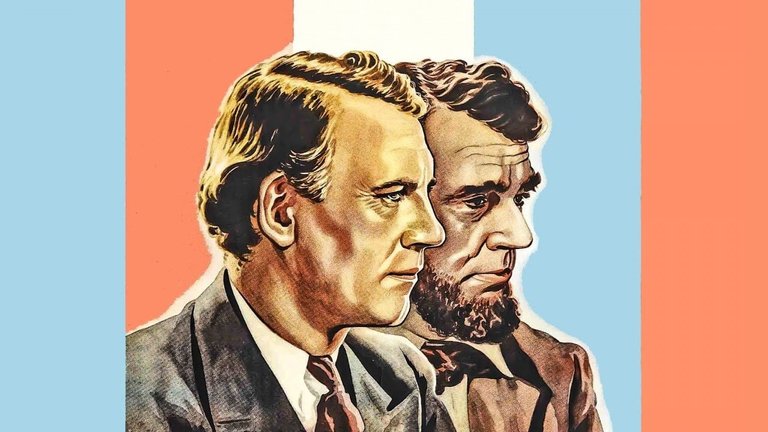Film Review: Abraham Lincoln (1930)

Few filmmakers have made such an important contribution to shaping cinema as art as David W. Griffith did. Despite his importance as a pioneer and influence on future film makers, Griffith actually had relatively short career by Hollywood standards. Already in 1920 he struggled to reconcile his Victorian morality with more hedonistic social mores of Jazz Age and he fared even worse with the advent on sound cinema. This could be seen in 1930 biopic Abraham Lincoln, Griffith’s first sound film.
The plot follows the life of the iconic American president, from his humble beginnings to his presidency during the Civil War and tragic assassination. However, the film's episodic structure and disjointed vignettes make it challenging for viewers unfamiliar with U.S. history to follow the narrative cohesively.
Technically, Griffith demonstrates competence in utilising sound and dialogue, as well as in staging exterior scenes like the reconstruction of Civil War battles. However, the film's shortcomings become apparent in its ending, where the portrayal of the Lincoln Memorial through a lacklustre model miniature (when location shooting or stock footage would have been avallable) reflects a lack of imagination and a decline in Griffith's once formidable creative potential.
Despite Griffith's personal connection to the historical context, being the son of a Confederate veteran, in his controversial film The Birth of a Nation showed soft the spot for Lincoln who is portrayed as great noble statesman and his assassination as national tragedy. This approach is even more evident in Abraham Lincoln, when the figure of 16th President is portrayed as almost saintly figure who is deeply affected by carnage and determined to forgive defeated Southern rebels for the sake of national reconciliation. Walter Huston delivers a powerful portrayal of Lincoln, capturing the president's humanity and statesmanship and his performance adds depth to the character, portraying Lincoln as a towering yet relatable figure, despite some questionable makeup choices in scenes depicting a younger Lincoln.
While Abraham Lincoln achieved moderate success at the box office, its critical reception was lukewarm. The film's simplistic approach to complex historical issues and its disjointed narrative structure failed to impress critics, leading Griffith to retire from directing after the commercial disappointment of his subsequent film, Struggle. This marked the end of Griffith's directorial career, as he transitioned to a role as a producer and advisor to younger filmmakers.
As the first sound film to tackle the Civil War, Abraham Lincoln initially intrigued audiences with its novelty. However, as the novelty of sound wore off, the film's outdated approach and lack of depth left it feeling archaic even by 1930s standards. Viewed through a modern lens, the film resembles the soulless historical docudramas characteristic of US broadcast television in late 20th-century television, lacking the depth and impact expected from a filmmaker of Griffith's stature.
While the film has its moments of strength, particularly in Huston's performance, Abraham Lincoln serves as a curious relic in Griffith's filmography and it ultimately falls short of the high standards set by one of cinema's most influential figures.
RATING: 5/10 (++)
Blog in Croatian https://draxblog.com
Blog in English https://draxreview.wordpress.com/
InLeo blog https://inleo.io/@drax.leo
Hiveonboard: https://hiveonboard.com?ref=drax
Rising Star game: https://www.risingstargame.com?referrer=drax
1Inch: https://1inch.exchange/#/r/0x83823d8CCB74F828148258BB4457642124b1328e
Posted using CineTV
